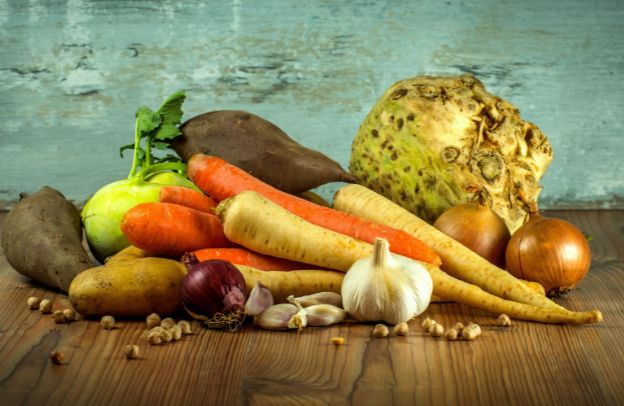In our quest for holistic wellness, the role of balanced nutrition cannot be overstated. This article takes a deep dive into the intricate connection between nutrition and overall well-being, with a particular focus on the rich and diverse landscape of African nutrition. Unraveling the secrets of balanced nutrition is not just a journey towards physical health but a pathway to achieving holistic wellness in its truest sense.
Understanding Holistic Wellness
Holistic wellness encompasses the integration of physical, mental, and social well-being. It is a state where all aspects of an individual’s life are in harmony, fostering a sense of balance and fulfillment. At the core of holistic wellness lies the foundation of balanced nutrition, providing the necessary fuel for the body and mind to function optimally.
African Nutrition Heritage
African nutrition is a tapestry woven with diverse cuisines and dietary traditions. Each region boasts unique flavors and culinary practices, deeply rooted in culture and history. From the hearty stews of West Africa to the grain-based dishes of East Africa, the continent’s culinary heritage is a testament to the abundance of natural resources and a profound connection between food and identity.
The Role of Balanced Nutrition in African Wellness
Contrary to some misconceptions, African diets are not monolithic. They vary widely across the continent, encompassing a rich array of fruits, vegetables, grains, and proteins. Dispelling stereotypes is crucial in appreciating the nutritional diversity present in traditional African diets.
Exploring Superfoods and Staples
Many African superfoods and staples offer exceptional nutritional benefits. From nutrient-dense moringa leaves to protein-rich fonio grains, these traditional ingredients are gaining recognition for their positive impact on health.
Challenges and Solutions
Despite the nutritional wealth, various challenges persist, including food insecurity, lack of access to diverse foods, and the erosion of traditional dietary practices. Recognizing these challenges is the first step towards finding effective solutions.
Innovative Initiatives
Innovative initiatives, such as community gardens, nutritional education programs, and sustainable farming practices, play a pivotal role in addressing nutritional challenges. These initiatives empower individuals to make informed choices about their diets.
Importance of Education
Education and awareness campaigns are essential components of promoting healthier dietary habits. By providing information about nutrition and its impact on well-being, individuals can make conscious choices that contribute to their overall health.
Practical Tips for Achieving Balanced Nutrition
Integrate traditional African foods into modern diets to enjoy the nutritional benefits of these diverse ingredients. Experiment with recipes that combine the flavors of traditional dishes with contemporary cooking techniques.
Develop meal plans that prioritize variety, moderation, and balance. Incorporate a mix of vegetables, fruits, lean proteins, and whole grains to ensure a well-rounded nutritional intake.
Mindful Eating
Practice mindful eating by savoring each bite, paying attention to hunger and fullness cues, and appreciating the cultural and sensory aspects of food. This approach fosters a healthier relationship with food and promotes overall well-being.
Cultural Perspectives on Wellness
Explore how holistic wellness is viewed and approached in different African culture. Integrate cultural practices into daily routines, drawing inspiration from age-old traditions that emphasize the interconnectedness of mind, body, and spirit.
Cultural Identity and Well-Being
Acknowledge the impact of cultural identity on personal well-being. Embracing one’s cultural roots can contribute positively to mental and emotional health, forming a crucial aspect of holistic wellness.
Future Trends and Opportunities
Keep an eye on emerging trends in African nutrition and wellness. From the growing popularity of indigenous ingredients to the increasing emphasis on sustainable and locally sourced foods, staying informed opens avenues for continued well-being.
The potential for collaborations between researchers, policymakers, and communities presents exciting opportunities. Continued research into African nutrition and wellness can lead to innovative solutions and interventions that benefit individuals and societies.
Recognize the role individuals play in contributing to the promotion of holistic wellness. Whether through supporting local farmers, adopting sustainable practices, or participating in community initiatives, everyone has the power to make a positive impact.
Conclusion
In conclusion, the journey to holistic wellness is intricately linked to the choices we make about what we eat. By exploring the rich heritage of African nutrition, embracing balanced diets, and incorporating cultural practices, individuals can unlock the key to optimal well-being.
It is a journey that goes beyond the plate, encompassing the cultural, social, and personal aspects that shape our overall health. In the pursuit of holistic wellness, let us celebrate the diversity of African nutrition and savor the benefits it brings to our lives.








This gateway is incredible. The splendid substance displays the administrator’s commitment. I’m overwhelmed and envision more such astonishing substance.
you are truly a just right webmaster The site loading speed is incredible It kind of feels that youre doing any distinctive trick In addition The contents are masterwork you have done a great activity in this matter
Your point of view caught my eye and was very interesting. Thanks. I have a question for you.